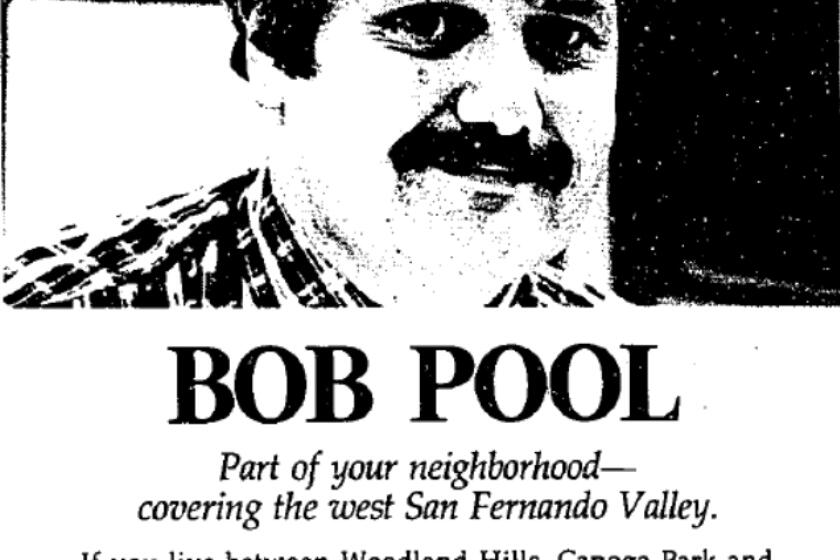L.A. Police Arrest 4 on Piracy Charges
Los Angeles police early Thursday arrested four men who allegedly produced 5,000 illegal copies of movies, marking one of the city’s biggest crackdowns on piracy to date.
The arrests were announced by Police Chief William J. Bratton at a news conference at the Grove shopping plaza, a few yards from the multiplex where police officers earlier this month made their first arrest under a new law banning videotaping inside movie theaters.
Attended by top city officials, studio executives and labor union representatives, the news conference was designed as a high-profile show of force in the film industry’s efforts to battle the global piracy problem it claimed siphoned more than $3 billion a year from its coffers.
“There’s an industry that’s involved here in this illegal activity,” Bratton said. “We are focusing not just on the element of filming, but production and distribution.”
Also attending were Mayor James K. Hahn and City Atty. Rocky Delgadillo, who announced he was filing the first ever criminal cases in Los Angeles under a new state law charging two additional men with videotaping inside movie theaters.
Delgadillo is filing 12 other criminal cases against street vendors accused of selling counterfeit DVDs and CDs.
In the Thursday arrests, police said an anonymous tip led them to a man selling allegedly counterfeit DVDs on a street in the west San Fernando Valley about a month and a half ago.
Their investigation led them Thursday to an allegedly counterfeit DVD and CD production line in a home on 4th Street west of downtown L.A. as well as an alleged distributor of bogus movies in South Los Angeles.
At the 4th Street site, police seized three stacks of DVD recorders, seven high-speed CD recorders, a computer, a disc labeler, dozens of boxes of allegedly counterfeit DVDs and CDs and about $5,000 in cash. They arrested Jose Luis Santiago, 33, of Los Angeles on charges of failing to identify the true origin of goods.
At the same time, officers raided a home on West 46th Street, where they confiscated dozens more boxes of allegedly counterfeit DVDs. Two men were arrested there, also on charges of failing to identify origin: Gerardo Morales, 27, and Jose Lezama, whose age was unavailable.
Police also arrested Filberto Gomez, 50, of the West Valley area on the same charge.
The raids netted more than 5,000 DVDs, Bratton said. The discs were primarily popular new releases, many of them not yet available on DVD, including “Man on Fire,” “The Punisher,” “Hellboy” and “The Passion of the Christ.” But the boxes included a smattering of older titles, such as “The Blue Lagoon,” and a few movies not yet in theaters, including “Soul Plane,” which is due in late May.
Separately, illegal videotaping charges were filed against Min Jae Joun, 28, arrested at the Grove on April 10 for allegedly using a camcorder at the Pacific Theatres to tape “The Passion” after moviegoers complained of seeing a blinking red light. Also charged was Ruben Moreno, 34, arrested April 12 at the Pacific Theatres in Chatsworth, where he was caught allegedly taping “The Alamo” after a projectionist scanned the audience using night-vision goggles.
In Washington, meanwhile, the Senate Judiciary Committee on Thursday approved a bill to crack down on movie piracy.
The legislation, passed on a voice vote, would make it a crime to record movies in theaters or screening rooms and impose up to three years in prison for the first offense and six years for subsequent convictions.
The committee also passed a bill Thursday that would enable the Justice Department to bring lawsuits against file-sharers who illegally copy movies and other copyrighted works.
“The only people making a profit are criminals,” Delgadillo said. “The studios lose money, the movie theaters lose money, jobs are in jeopardy.”
Hollywood studios and labor groups have been pressing local officials to crack down on piracy, hoping to exploit such high-profile arrests to discourage illegal taping and distribution.
“If somebody’s going to be ripping it off, they need to know we’re not going to sit around and tolerate it,” Hahn said.
More to Read
Start your day right
Sign up for Essential California for news, features and recommendations from the L.A. Times and beyond in your inbox six days a week.
You may occasionally receive promotional content from the Los Angeles Times.







